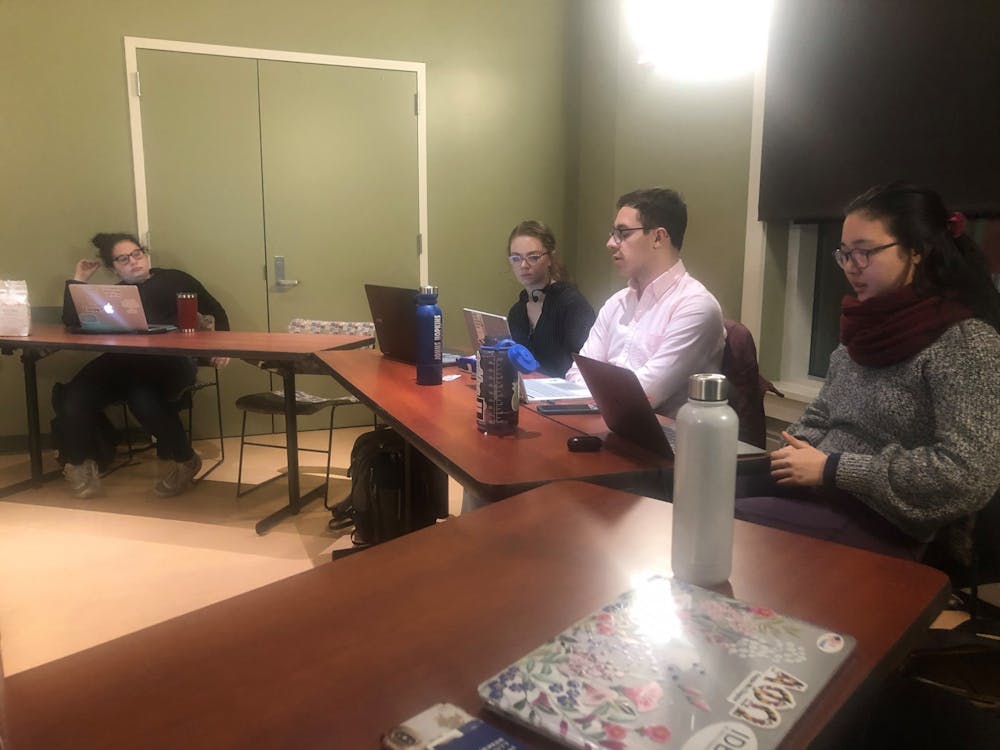IDEAL, a student-run nonpartisan group, hosted a coronavirus discussion roundtable to increase conversation about the social and political impacts of the disease on Wednesday, Feb. 26. The event considered the perceptions and implications of the coronavirus.
Sophomore Gabe Feuerstein-Mendik, IDEAL vice president and member of the education committee, started by explaining flu-like symptoms of the disease. He emphasized the importance of finding the animal origin of the disease because it can transfer from animals to humans.
He stated that coronavirus originated in the Wuhan region and that there is controversy about how the Chinese government and Xi Jinping, general secretary of the Communist Party of China, dealt with informing the public.
“In this time period, Wuhan actually hosted a mass banquet just to set the world record. They invited 40,000 families to all eat together and during this time is when they think it all started spreading,” Feuerstein-Medik said.
There was a 13-day period before the Chinese government made a public announcement about the virus.
Sophomore Samiha Abd-Elazem, who attended the event, explained that this delay could have caused the rapid spread of the disease.
“I feel like the 13-day period was a long time. If they had known about the disease and how it could have spread, then I think that they should have taken that to notice and at least just give everyone that was attending a warning,” she said.
However, IDEAL President Mickey Sloat, a junior, noted that in the past, governments have been slower to respond to large public health crises. She cited the AIDS epidemic in the 1960s, which the U.S. government did not seriously address until years later.
“13 days is actually a very short waiting period between the government’s knowledge of the disease and their announcement of it,“ she said. “Taking time... before putting together a press release is beneficial in waiting at least 13 days.”
Sophomore Amanda Yuen, a member of IDEAL’s education branch, noted the impact the coronavirus had on the global economy, stating that the DOW Jones Industrial Average dropped 900 points just that day.
“Because we live in an international economy, everyone’s suffering from this, particularly because China is such a global powerhouse,” she said.
Yuen discussed how other industries, such as the preventative healthcare industry, dealt with an influx in demand for goods such as gloves and surgical masks, that let them raise prices.
“It’s part of a public growing fear and a need to take back control,” she said.
Participants noted that the most effective masks have become prohibitively expensive for people.
IDEAL members and guests turned to the role of the media in the crisis.
Sophomore Jenna Brown stated that the media and the global audience should focus more on realistically portraying the disease and minimizing mass hysteria.
“The most important thing to do — since we now have all this information from other countries and how it spread — is to just emphasize what people should be doing,“ she said.





